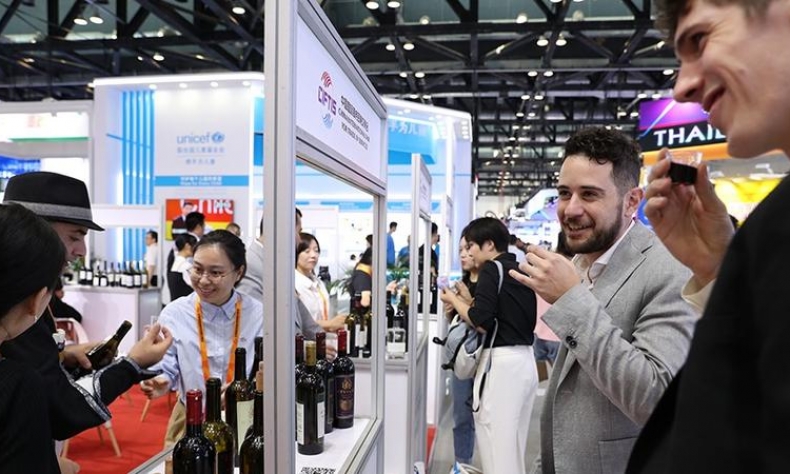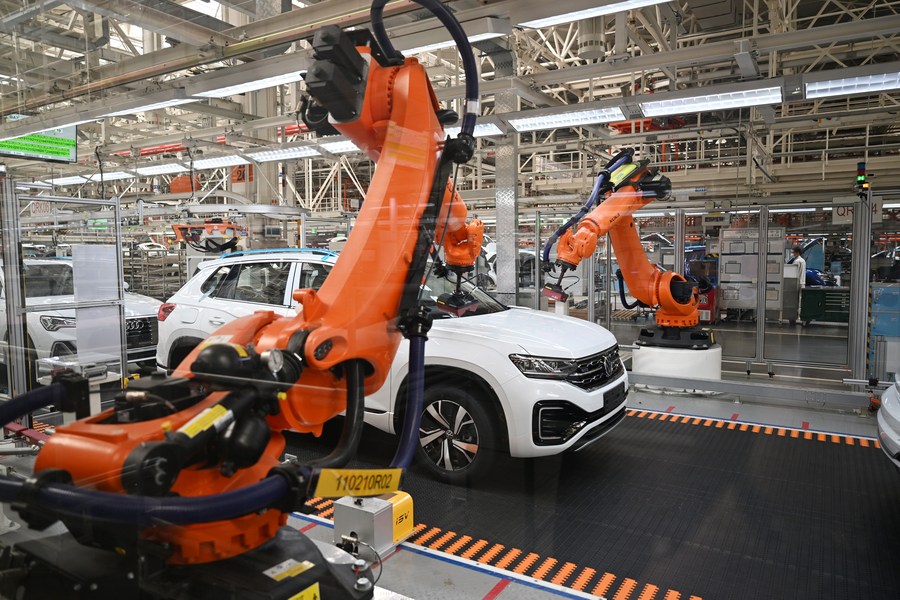James O’Neill: Multinational Companies Want to Stay in China

The globalization and trade between the U.S. and China has raised the standard of living in the United States more than anything possibly in history.
Editor’s Note: China remains greatly attractive to international investments and businesses today despite the uncertainty caused by the “decoupling” or “de-risking” voice of some western politicians. In an interview with China Focus, James O’Neill, Managing Director & COO of JFP Holdings, expresses his confidence of the Chinese economy and why many business leaders want to stay in China. James O’Neill, who graduated from Harvard Business School, has been following China’s economic development and actively participating in China-focused investment activities since the 1980s.
According to your observation, what stages of development has the Chinese economy gone through?
James O‘Neill: I was working in investment banking, and I was offered the opportunity to work with a startup group of investment professionals who were opening up a private equity business in China. So, I came back in 1985. And in the end, we owned about 20 different companies, literally all over China, in almost every province in China. And it was really an interesting time.
In the mid-1990s, China was still very much an agrarian rural population. There was manufacturing, but it was old manufacturing, old technology, old processes, highly laboring intensive, very imprecise and very low quality. And the leaders back then realized that if China is to really develop, they had to improve the quality and the technology amongst their manufacturing center. I think the Chinese were very, very smart. They said we want to work with you to develop ourselves and develop the market. And sure enough, that’s what they did.
You went through period in the late 1990s to early 2000 when technology was just improving, improving, improving. And I think then you really saw this explosion of private companies. And a lot of them have been very smart and spread out the ownership of the company to their employees, and that gives everybody a vested interest. All these private companies are now amongst the largest, not only in China but even in the world.
And now the question is, where do they go from here? China still has this issue that the eastern part of the country is quite well developed now. But there are still large parts of the country that haven’t really benefited from this development. It is an opportunity because there’s actually still a majority of the population. When the base is starting low and you can grow with it. My understanding of dual circulation concept is that it is aimed to develop the domestic market and at the same time actively pursue the export market.
And what’s been very, very helpful is China sort of moved up that skill and technology curve and become better and better at pretty much everything. And a lot of it, I think, is because they knew they had to improve their quality in order to sell it internationally. So, yeah, in over all, I think it’s a good idea, and that’s what China should be doing.

How do you evaluate China’s investment and business environment?
James O‘Neill: China’s come a long way. I mean, it’s a lot easier to start a business or work with a partner here than it certainly was 25 years ago. I would say one of the biggest problems back then was what I would sort of call lack of transparency.
That created a lot of uncertainty. I think that they’ve made a lot of advances into making the legal system a lot more transparent. I think the financial sector is still a bit problematic from the perspective of free flow of funds and free exchange of currency and things like that. But what I would say is you could ask any multinational in the world and they will tell you that we had tough times, but I am very happy with my business in China.
And I think one area that I’m very excited about, one area where they’ve absolutely excelled is electric vehicles. The China automobile manufacturers really learned a lot from their partners. They really internalized all this technology, and they understood why it was so important. And they’ve taken that and they really run with it.
How do you understand the Belt and Road Initiative?
James O‘Neill: I was very, very excited when it (the Belt and Road Initiative) was first announced 10 years ago. I honestly think a lot of governments and countries in the world were quite excited. And I was very proud of China because it was a true leadership moment for them to say, look, we China as a country benefited from other people coming and investment to get our country, and we should do the same to these other emerging markets. So I think from a big picture perspective, the objectives are all very, very honorable, and they should be pursued.
The anti-globalization sentiment has affected world economy in recent years. How do you think the headwind for international businesses and what should we do?
James O‘Neill: I don’t understand this anti-globalization sentiment at all. I’m especially confused about it coming from a place like America. The globalization and trade between the U.S. and China has raised the standard of living in the United States more than anything possibly in history. If you look at multinational companies, they want to stay in China because they know that’s the only way they can access the market. I mean, they’re very much in favor of globalization. I think part of it is just politicians again trying to find somebody else to blame. And yeah, they’re just giving out bad information to the voting public.
China’s always done a good job of trying to reach out and say we want to be a partner here. We’re at the stage where China needs to say, we’re ready to sit at the adult’s table, we want to be in partnership with you.
 Facebook
Facebook
 Twitter
Twitter
 Linkedin
Linkedin
 Google +
Google +










